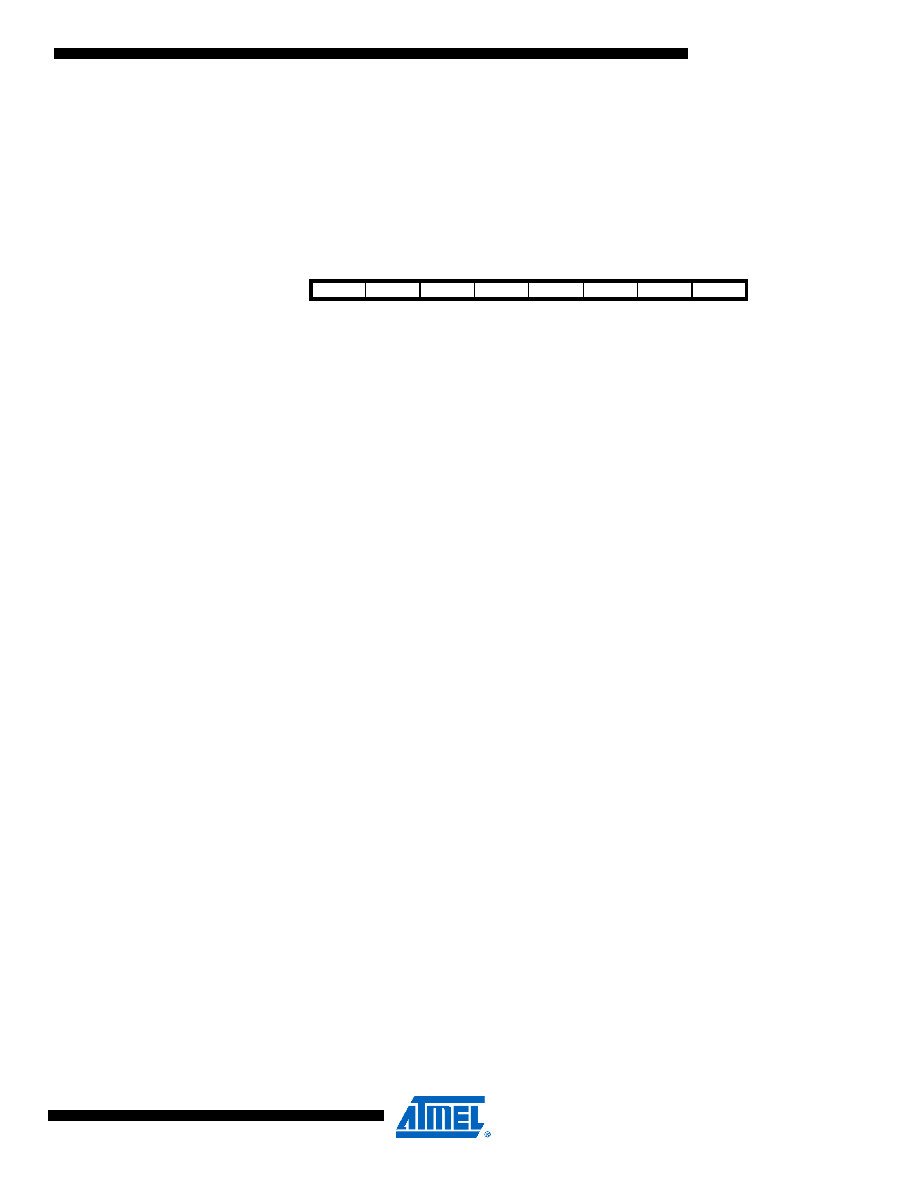- 您現(xiàn)在的位置:買賣IC網(wǎng) > PDF目錄45594 > MV80C31-36D (TEMIC SEMICONDUCTORS) 8-BIT, 36 MHz, MICROCONTROLLER, PQFP44 PDF資料下載
參數(shù)資料
| 型號(hào): | MV80C31-36D |
| 廠商: | TEMIC SEMICONDUCTORS |
| 元件分類: | 微控制器/微處理器 |
| 英文描述: | 8-BIT, 36 MHz, MICROCONTROLLER, PQFP44 |
| 文件頁(yè)數(shù): | 69/346頁(yè) |
| 文件大?。?/td> | 5829K |
| 代理商: | MV80C31-36D |
第1頁(yè)第2頁(yè)第3頁(yè)第4頁(yè)第5頁(yè)第6頁(yè)第7頁(yè)第8頁(yè)第9頁(yè)第10頁(yè)第11頁(yè)第12頁(yè)第13頁(yè)第14頁(yè)第15頁(yè)第16頁(yè)第17頁(yè)第18頁(yè)第19頁(yè)第20頁(yè)第21頁(yè)第22頁(yè)第23頁(yè)第24頁(yè)第25頁(yè)第26頁(yè)第27頁(yè)第28頁(yè)第29頁(yè)第30頁(yè)第31頁(yè)第32頁(yè)第33頁(yè)第34頁(yè)第35頁(yè)第36頁(yè)第37頁(yè)第38頁(yè)第39頁(yè)第40頁(yè)第41頁(yè)第42頁(yè)第43頁(yè)第44頁(yè)第45頁(yè)第46頁(yè)第47頁(yè)第48頁(yè)第49頁(yè)第50頁(yè)第51頁(yè)第52頁(yè)第53頁(yè)第54頁(yè)第55頁(yè)第56頁(yè)第57頁(yè)第58頁(yè)第59頁(yè)第60頁(yè)第61頁(yè)第62頁(yè)第63頁(yè)第64頁(yè)第65頁(yè)第66頁(yè)第67頁(yè)第68頁(yè)當(dāng)前第69頁(yè)第70頁(yè)第71頁(yè)第72頁(yè)第73頁(yè)第74頁(yè)第75頁(yè)第76頁(yè)第77頁(yè)第78頁(yè)第79頁(yè)第80頁(yè)第81頁(yè)第82頁(yè)第83頁(yè)第84頁(yè)第85頁(yè)第86頁(yè)第87頁(yè)第88頁(yè)第89頁(yè)第90頁(yè)第91頁(yè)第92頁(yè)第93頁(yè)第94頁(yè)第95頁(yè)第96頁(yè)第97頁(yè)第98頁(yè)第99頁(yè)第100頁(yè)第101頁(yè)第102頁(yè)第103頁(yè)第104頁(yè)第105頁(yè)第106頁(yè)第107頁(yè)第108頁(yè)第109頁(yè)第110頁(yè)第111頁(yè)第112頁(yè)第113頁(yè)第114頁(yè)第115頁(yè)第116頁(yè)第117頁(yè)第118頁(yè)第119頁(yè)第120頁(yè)第121頁(yè)第122頁(yè)第123頁(yè)第124頁(yè)第125頁(yè)第126頁(yè)第127頁(yè)第128頁(yè)第129頁(yè)第130頁(yè)第131頁(yè)第132頁(yè)第133頁(yè)第134頁(yè)第135頁(yè)第136頁(yè)第137頁(yè)第138頁(yè)第139頁(yè)第140頁(yè)第141頁(yè)第142頁(yè)第143頁(yè)第144頁(yè)第145頁(yè)第146頁(yè)第147頁(yè)第148頁(yè)第149頁(yè)第150頁(yè)第151頁(yè)第152頁(yè)第153頁(yè)第154頁(yè)第155頁(yè)第156頁(yè)第157頁(yè)第158頁(yè)第159頁(yè)第160頁(yè)第161頁(yè)第162頁(yè)第163頁(yè)第164頁(yè)第165頁(yè)第166頁(yè)第167頁(yè)第168頁(yè)第169頁(yè)第170頁(yè)第171頁(yè)第172頁(yè)第173頁(yè)第174頁(yè)第175頁(yè)第176頁(yè)第177頁(yè)第178頁(yè)第179頁(yè)第180頁(yè)第181頁(yè)第182頁(yè)第183頁(yè)第184頁(yè)第185頁(yè)第186頁(yè)第187頁(yè)第188頁(yè)第189頁(yè)第190頁(yè)第191頁(yè)第192頁(yè)第193頁(yè)第194頁(yè)第195頁(yè)第196頁(yè)第197頁(yè)第198頁(yè)第199頁(yè)第200頁(yè)第201頁(yè)第202頁(yè)第203頁(yè)第204頁(yè)第205頁(yè)第206頁(yè)第207頁(yè)第208頁(yè)第209頁(yè)第210頁(yè)第211頁(yè)第212頁(yè)第213頁(yè)第214頁(yè)第215頁(yè)第216頁(yè)第217頁(yè)第218頁(yè)第219頁(yè)第220頁(yè)第221頁(yè)第222頁(yè)第223頁(yè)第224頁(yè)第225頁(yè)第226頁(yè)第227頁(yè)第228頁(yè)第229頁(yè)第230頁(yè)第231頁(yè)第232頁(yè)第233頁(yè)第234頁(yè)第235頁(yè)第236頁(yè)第237頁(yè)第238頁(yè)第239頁(yè)第240頁(yè)第241頁(yè)第242頁(yè)第243頁(yè)第244頁(yè)第245頁(yè)第246頁(yè)第247頁(yè)第248頁(yè)第249頁(yè)第250頁(yè)第251頁(yè)第252頁(yè)第253頁(yè)第254頁(yè)第255頁(yè)第256頁(yè)第257頁(yè)第258頁(yè)第259頁(yè)第260頁(yè)第261頁(yè)第262頁(yè)第263頁(yè)第264頁(yè)第265頁(yè)第266頁(yè)第267頁(yè)第268頁(yè)第269頁(yè)第270頁(yè)第271頁(yè)第272頁(yè)第273頁(yè)第274頁(yè)第275頁(yè)第276頁(yè)第277頁(yè)第278頁(yè)第279頁(yè)第280頁(yè)第281頁(yè)第282頁(yè)第283頁(yè)第284頁(yè)第285頁(yè)第286頁(yè)第287頁(yè)第288頁(yè)第289頁(yè)第290頁(yè)第291頁(yè)第292頁(yè)第293頁(yè)第294頁(yè)第295頁(yè)第296頁(yè)第297頁(yè)第298頁(yè)第299頁(yè)第300頁(yè)第301頁(yè)第302頁(yè)第303頁(yè)第304頁(yè)第305頁(yè)第306頁(yè)第307頁(yè)第308頁(yè)第309頁(yè)第310頁(yè)第311頁(yè)第312頁(yè)第313頁(yè)第314頁(yè)第315頁(yè)第316頁(yè)第317頁(yè)第318頁(yè)第319頁(yè)第320頁(yè)第321頁(yè)第322頁(yè)第323頁(yè)第324頁(yè)第325頁(yè)第326頁(yè)第327頁(yè)第328頁(yè)第329頁(yè)第330頁(yè)第331頁(yè)第332頁(yè)第333頁(yè)第334頁(yè)第335頁(yè)第336頁(yè)第337頁(yè)第338頁(yè)第339頁(yè)第340頁(yè)第341頁(yè)第342頁(yè)第343頁(yè)第344頁(yè)第345頁(yè)第346頁(yè)

160
2503Q–AVR–02/11
ATmega32(L)
data into the transmit Shift Register when the Shift Register is empty. Then the data will be seri-
ally transmitted on the TxD pin.
The receive buffer consists of a two level FIFO. The FIFO will change its state whenever the
receive buffer is accessed. Due to this behavior of the receive buffer, do not use read modify
write instructions (SBI and CBI) on this location. Be careful when using bit test instructions (SBIC
and SBIS), since these also will change the state of the FIFO.
USART Control and
Status Register A –
UCSRA
Bit 7 – RXC: USART Receive Complete
This flag bit is set when there are unread data in the receive buffer and cleared when the receive
buffer is empty (that is, does not contain any unread data). If the receiver is disabled, the receive
buffer will be flushed and consequently the RXC bit will become zero. The RXC Flag can be
used to generate a Receive Complete interrupt (see description of the RXCIE bit).
Bit 6 – TXC: USART Transmit Complete
This flag bit is set when the entire frame in the transmit Shift Register has been shifted out and
there are no new data currently present in the transmit buffer (UDR). The TXC Flag bit is auto-
matically cleared when a transmit complete interrupt is executed, or it can be cleared by writing
a one to its bit location. The TXC Flag can generate a Transmit Complete interrupt (see descrip-
tion of the TXCIE bit).
Bit 5 – UDRE: USART Data Register Empty
The UDRE Flag indicates if the transmit buffer (UDR) is ready to receive new data. If UDRE is
one, the buffer is empty, and therefore ready to be written. The UDRE Flag can generate a Data
Register empty Interrupt (see description of the UDRIE bit).
UDRE is set after a reset to indicate that the transmitter is ready.
Bit 4 – FE: Frame Error
This bit is set if the next character in the receive buffer had a Frame Error when received. that is,
when the first stop bit of the next character in the receive buffer is zero. This bit is valid until the
receive buffer (UDR) is read. The FE bit is zero when the stop bit of received data is one. Always
set this bit to zero when writing to UCSRA.
Bit 3 – DOR: Data OverRun
This bit is set if a Data OverRun condition is detected. A Data OverRun occurs when the receive
buffer is full (two characters), it is a new character waiting in the receive Shift Register, and a
new start bit is detected. This bit is valid until the receive buffer (UDR) is read. Always set this bit
to zero when writing to UCSRA.
Bit 2 – PE: Parity Error
This bit is set if the next character in the receive buffer had a Parity Error when received and the
parity checking was enabled at that point (UPM1 = 1). This bit is valid until the receive buffer
(UDR) is read. Always set this bit to zero when writing to UCSRA.
Bit
765
4321
0
RXC
TXC
UDRE
FE
DOR
PE
U2X
MPCM
UCSRA
Read/Write
R
R/W
R
R/W
Initial Value
001
0000
0
相關(guān)PDF資料 |
PDF描述 |
|---|---|
| IR80C52EXXX-25SHXXX:RD | 8-BIT, MROM, 25 MHz, MICROCONTROLLER, CQCC44 |
| R83C154XXX-12R | 8-BIT, MROM, 12 MHz, MICROCONTROLLER, CQCC44 |
| MVUPS1040CTE3 | 10 A, 40 V, SILICON, RECTIFIER DIODE |
| MX102J | DSP-CORRELATOR, CDIP16 |
| MX10C8050PC | 8-BIT, MROM, 40 MHz, MICROCONTROLLER, PDIP40 |
相關(guān)代理商/技術(shù)參數(shù) |
參數(shù)描述 |
|---|---|
| MV8102 | 功能描述:標(biāo)準(zhǔn)LED-通孔 T-1 3/4 RED CLR 20DG RoHS:否 制造商:Vishay Semiconductors 照明顏色:Red 光強(qiáng)度:0.7 mcd 波長(zhǎng)/色溫:615 nm 顯示角:45 deg 透鏡顏色/類型:Clear, Non-Diffused 正向電流:70 mA 正向電壓:1.83 V to 3.03 V LED 大小:2 mm 系列: 封裝:Tube |
| MV8102 | 制造商:Fairchild Semiconductor Corporation 功能描述:LED ALGAAS SUPERBRIGHT RED |
| MV8102 | 制造商:Fairchild Semiconductor Corporation 功能描述:LED LAMP |
| MV8103 | 功能描述:標(biāo)準(zhǔn)LED-通孔 T-1 3/4 RED CLR 20DG RoHS:否 制造商:Vishay Semiconductors 照明顏色:Red 光強(qiáng)度:0.7 mcd 波長(zhǎng)/色溫:615 nm 顯示角:45 deg 透鏡顏色/類型:Clear, Non-Diffused 正向電流:70 mA 正向電壓:1.83 V to 3.03 V LED 大小:2 mm 系列: 封裝:Tube |
| MV8104 | 功能描述:標(biāo)準(zhǔn)LED-通孔 T-1 3/4 RED CLR 20DG RoHS:否 制造商:Vishay Semiconductors 照明顏色:Red 光強(qiáng)度:0.7 mcd 波長(zhǎng)/色溫:615 nm 顯示角:45 deg 透鏡顏色/類型:Clear, Non-Diffused 正向電流:70 mA 正向電壓:1.83 V to 3.03 V LED 大小:2 mm 系列: 封裝:Tube |
發(fā)布緊急采購(gòu),3分鐘左右您將得到回復(fù)。